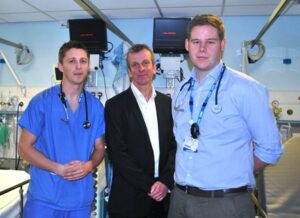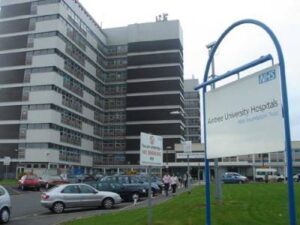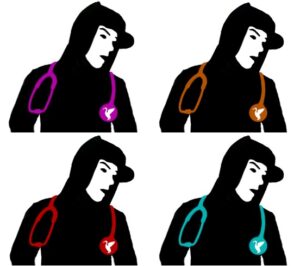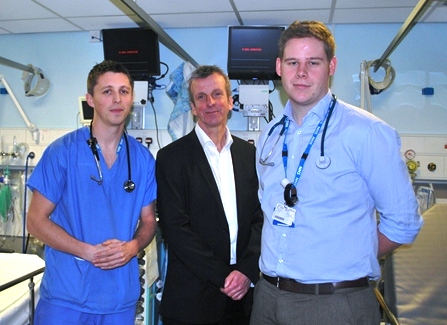
A project created in Merseyside which can save the lives of young people if they are stabbed is being rolled out nationwide.
The scheme aims to teach young people involved in knife crime the necessary first aid and pre-hospital trauma management needed so that can they help their friends at the scene of knife crimes while waiting for paramedics.
Dr Nick Rhead and Dr Simon Jackson set up the Street Doctors scheme in 2008 after working with young offenders whilst volunteering and went to Liverpool Young Offenders Service to teach CPR.
All of the 11 youths they were teaching admitted to seeing someone get stabbed, with three also saying they had witnessed someone being shot.
Dr Rhead and Dr Jackson now teach 11-17 year olds life-saving knowledge in workshops across the city during their spare time.
Last weekend more than 80 medical students from across the country descended upon Aintree University Hospital for the second Street Doctors conference, to learn more about the pioneering project aimed at young people.
The course aims to use medical students and student doctors to make sure that those teaching the courses are close in age to those learning.
Speaking to JMU Journalism, Dr Nick Rhead said: “We are the only people doing something like this as far as we can tell. No matter how much training medical professionals get they’ll never be the ones at the scene of a crime unlike these young kids. These are the ones that can provide life saving treatments.”

Since its creation, Street Doctors has helped more than 1,500 young people and contribute towards saving the lives of at least three people.
The project now also has branches in Manchester, Nottingham, East and West London and Sheffield to allow others involved in crime learn the life-saving techniques.
Rob Jackson, an A&E clinician at Liverpool Royal University Hospital, is involved in a similar scheme, which aims to teach youths become more aware of the serious medial implications of knife crime.
Giving presentations across the UK, including school children as well as those who have been excluded, Mr Jackson shows gruesome pictures of injuries he has seen come into A&E all through knife crime.
Speaking to JMU Journalism, Mr Jackson said: “There can’t be enough of these sorts of projects. If Liverpool is driving it then it is brilliant that other people are getting involved.
“The reality is that we probably can‘t change this generation, but speaking to younger people can help change the next.”
Projects like the Street Doctors initiative and Rob Jackson’s presentations appear to be having a positive effect on what is coming through the doors of A&E in Liverpool, with figures showing a 28% reduction of penetrating trauma.
Dr Rhead is hoping that in the future the Street Doctors initiative can be taken worldwide to help other areas affected by violent crime.

He said: “Ideally we want to teach it in ever major city in the UK, or in places like Brighton where they don’t have as much of a problem we’d like to start modules like sexual health and drugs. We don’t see why we can’t go as far as the United States or South Africa.”
The scheme has managed to help save the lives of three people so far, with one young person who had participated in only one session saving the life of someone stabbed in the park.
Steve Boote, restorative justice coordinator for the Liverpool Young Offenders service, has praised Nick and Simon for their achievements so far.
He said: “Many of the youngsters we see come from very difficult backgrounds, so it is great for them to see what can be achieved if you focus your energy on making a positive difference to your local community.”
So far the project has only been given funding from the Big Lottery Fund and NHS North West Innovation Fund but there are plans to register it as a charity to allow fundraising and donations to support it.
Liverpool Wavertree MP Luciana Berger said on her website: ” It is great to see a voluntary organisation like this making such a positive impact. I sincerely hope that Street Doctors will go from strength to strength.”

